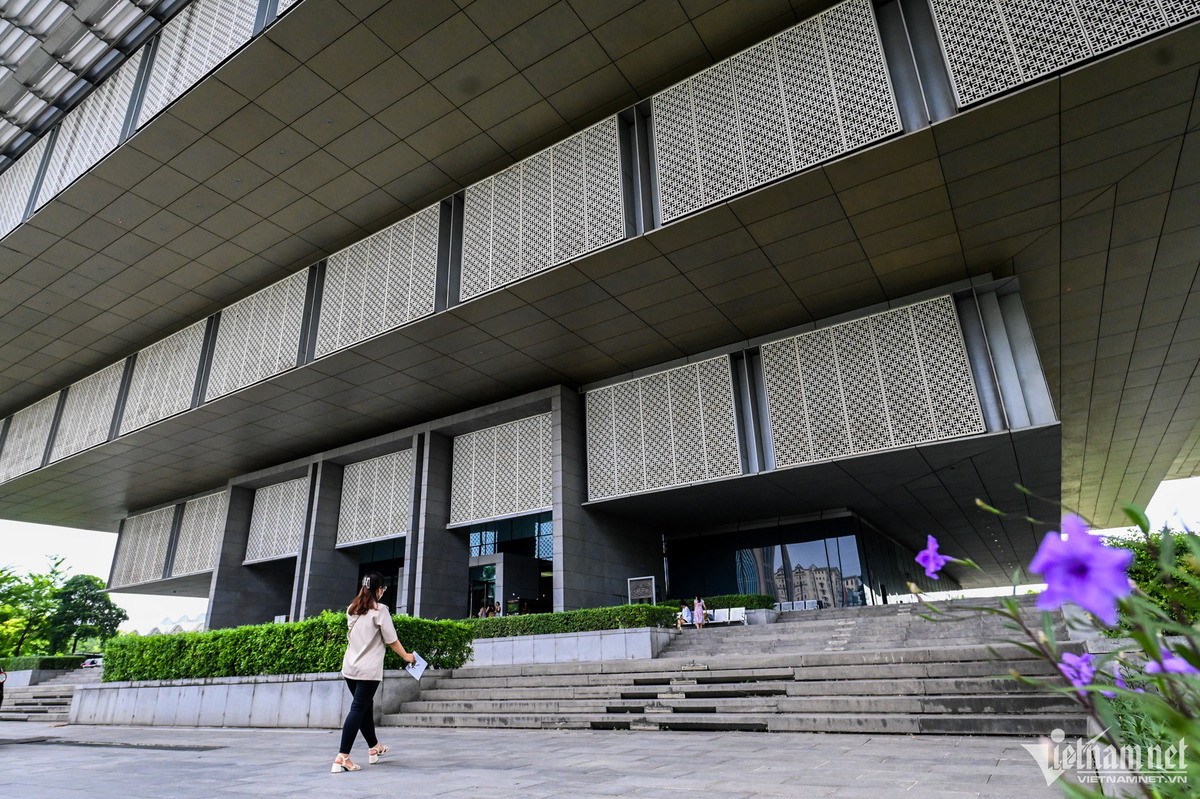
On June 19, the National Assembly discussed the national target program on culture development in 2025-2035.
The program mentions the establishment and operation of Vietnamese culture centers in countries which have long lasting cultural relationships with Vietnam, such as the US, Japan, Russia, South Korea, China and Cambodia.
Nguyen Van Manh, a National Assembly deputy from Vinh Phuc said no specific goals for culture development have been set, stressing that it is necessary to specify how many Vietnamese culture centers in foreign countries Vietnam needs in 2030-2035.
Nguyen Lan Hieu, a National Assembly deputy from Binh Dinh, said establishing culture centers overseas is good, but not a new idea. He said it is necessary to discuss if the centers can operate effectively, warning that it would be very costly to maintain such centers and find professional people to run the centers.
"Tenure-based thinking", a phrase used by critics, is the biggest barrier, he said. The phrase implies short-sighted vision of some state officials and party members, who just think of designing development programs during their tenure, and who try to seek benefits for themselves when they are still in high-ranking positions and have power.
Hieu warned that the problem may cause culture centers to die young, or languish as some centers have in recent years.
He said that it would be better to support associations and contingents of overseas Vietnamese, so that they can operate culture, trade and service centers, as well as manage restaurants, food centers, supermarkets and goods distribution.
Meanwhile, Nguyen Van Canh, a National Assembly deputy from Binh Dinh, stressed that in order to make the world better recognize Vietnamese culture, Vietnam needs to show its specific character.
“We have had items for cultural recognition, but we have not set criteria for identification of National Flag, National Anthem, National Language, National Ancestor, National Costume, National Flower, National Wine, National Musical Instrument, and cultural heritage recognized by the world,” Canh said.
The cultural products to be introduced to the world must be imbued with national identity and have high quality to create good impression.
Canh believes that Vietnam still should not make high level of investment in overseas cultural centers until it sets criteria for Vietnamese culture recognition and improves the quality of cultural products.
How much to invest in culture?
Ta Van Ha, a National Assembly deputy from Quang Nam, said Vietnam designed target programs on culture development twice in the past, for 2011-2016 and 2016-2020, but the programs did not bring the desired effects. One of the programs was capitalized at VND5 trillion, but only VND3 trillion was disbursed.
He also questioned if the dossier of the draft is adequate under the law on public investment.
One of the tasks mentioned in the draft national culture development program is building communal culture houses, but this is not in line with the Law on Public Investment.
There are 10,549 communes nationwide, but it is unclear how many communes have had culture houses, how the culture houses have been operating, and which house needs to be upgraded. Only when there is sufficient information will agencies be able to estimate the total investment capital needed.
Trinh Xuan An, a National Assembly deputy from Dong Nai, commented that the national program coverage is broad, with 10 component tasks and hundreds of detailed activities.
“We are in a forest of activities, and therefore, it is necessary to clarify which fields need higher priority and attention,” he said.
An also asked for an explanation about why the total investment is estimated at VND256 trillion, or $11 billion.
Nguyen Quang Huan from Binh Duong said the average annual spending level is $1 billion, a relatively high figure compared with Vietnam’s GDP of $452 billion.
However, it would be a small figure if Vietnam’s GDP reaches $800-900 billion by 2035.
Tran Thuong